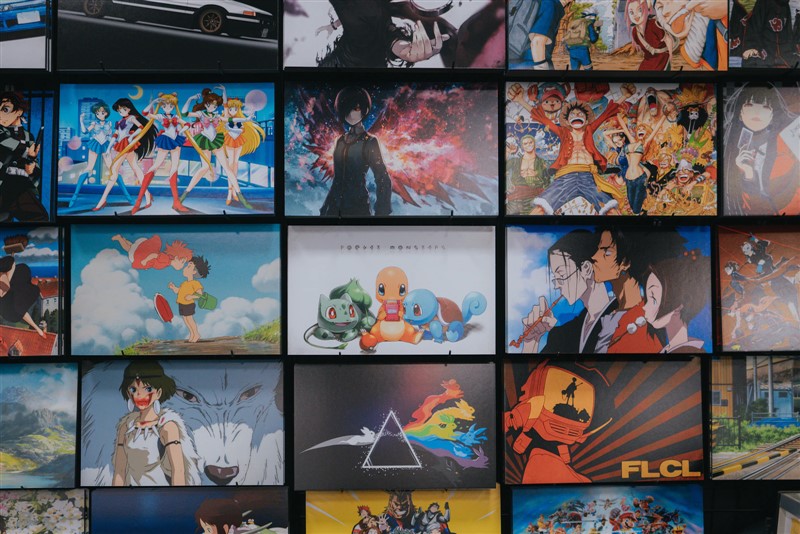Do you know the definition of doujinshi? This article will provide you with all of the information you need on the Japanese word doujinshi, including its definition, usage, etymology, and more!
-
Kevin
-
 June 4, 2021
June 4, 2021
-
 Common Questions
Common Questions
 June 4, 2021
June 4, 2021
 Common Questions
Common Questions
Do you know the definition of doujinshi? This article will provide you with all of the information you need on the Japanese word doujinshi, including its definition, usage, etymology, and more!
According to Dictionary, Urban Dictionary, and Tofugu, the word doujinshi (kanji: 同人誌), also spelled dojinshi or doujin, refers to a self-published magazine or publication that caters to a special interest group or specific group of people. Sometimes, these works are in the form of erotic manga porn that feature nudity. Some doujinshi are yaoi, yuri, shoujo, hentai doujinshi, or other types of manga. These amateur manga publications sometimes feature a cast of original characters, and sometimes features characters from other manga or anime. Doujinshi has two main categories. The first is parody, or パロディ, also known as niji sousaku, or 二次創作. These are derivative works that are based on other pre-existing characters and settings. This is sort of like fanart or fanfiction, but the person creating the doujinshi sells it for a profit. Often, fanart and fanfiction are published online for free.
The other type of doujinshi is original doujinshi, or オリジナル, also known as ichiji sousaku, or 一次創作. These works are not based off of any other existing anime, manga, video game, or anything else. These amateur works are completely original, and are also sold for a profit. You may be wondering how fan projects are allowed to exist for profit without being shut down by legal teams. While in America, lawyers often come after parody projects or derivative works that make a profit, it is a completely different landscape in Japan.
In Japan, while copyright law exists, Japanese rights holders do not complain or craft cease-and-desist letters. They are well aware of the booming industry that is crafted around these fan projects; there are around a thousand doujinshi sokubaikai (同人誌即売会どうじんしそくばいかい), or doujinshi selling events in Japan every year. While some of these allow any genre to participate, some are very specific. The largest and most famous of these conventions is Comiket, which draws over 600,000 attendees. Additionally, doujinshi is sold online year-round. While people who make niji sousaku are in a bit of a legal gray area, no big Japanese publishers really care. This is for many different reasons.
These companies respect amateur artists because many of them came from similar backgrounds, adn view this fanart as a step toward professionalism. They also want to maintain a good reputation and not alienate their customers. Any press is good press, even if that press infringes on copyright. It is free advertising, and doujinshi is covered under parody laws. Additionally, unnecessary litigation is frowned upon in Japan. Many of these people are not professional artists, and have other jobs in a regular industry. It is a common misunderstanding that all doujinshi authors make a profit. Many simply enjoy telling stories about their favorite characters. The doujinshi artists that do make a profit and are professional doujinshi artists are known as Oote 大手おおて or Oote-san 大手さんおおて, or in English, “big ones.” These include Chica Umino, Kiyohiko Azuma, Gainax, Masama Yuuki, Clamp, and many more. These professionals usually start by selling at conventions. Check out the below statistics on doujinshi creators!
How do you make a living?
How many copies do you sell at a given event?
Why do you make doujinshi?

The word doujinshi is made up of two different Japanese words. The first is doujin, or 同人. This word means “same person,” and is used to refer to a group of people with the same shared interests. The second is shi, or 誌. This is short for the word zasshi, or 雑誌, which means magazine. According to Know Your Meme, Word Sense, and Fanlore, doujinshi originated in the Meiji Era of Japan. These were published since the year 1874. The first magazine that published doujinshi was called Garakuta Bunko. It was very popular in the Showa period, but dropped after the way. In the 1970s, doujinshi’s popularity began to rise again. This is probably due to the advent of the photocopy machine. This made it a lot easier to make copies of doujinshi and distribute it more easily. With the advent of the internet, these began to be published for free on sites like Deviant Art, and sold on eBay.
Many people in English-speaking countries might not know what doujinshi are. In America, we would most likely use the word zine in place of the term doujinshi. Zine is a synonym for doujinshi; synonyms are words and phrases that have the same meaning as another word or phrase. Knowing the American term for the Japanese word doujinshi is very helpful in clarifying what you mean. Additionally, sometimes fanart or fan fiction are synonymous with certain types of doujinshi. These would be synonymous with parody, or パロディ, also known as niji sousaku, or 二次創作. A zine would be synonymous with original doujinshi, or オリジナル, also known as ichiji sousaku, or 一次創作.
Overall, the Japanese term doujinshi refers to fan-produced manga drawing or essay booklets that a single artist sells to the general public. Sometimes these are parodies of other manga or anime series, and sometimes they are fully original stories with original characters. These are often sold at conventions in Japan or are sold online on sites like eBay.